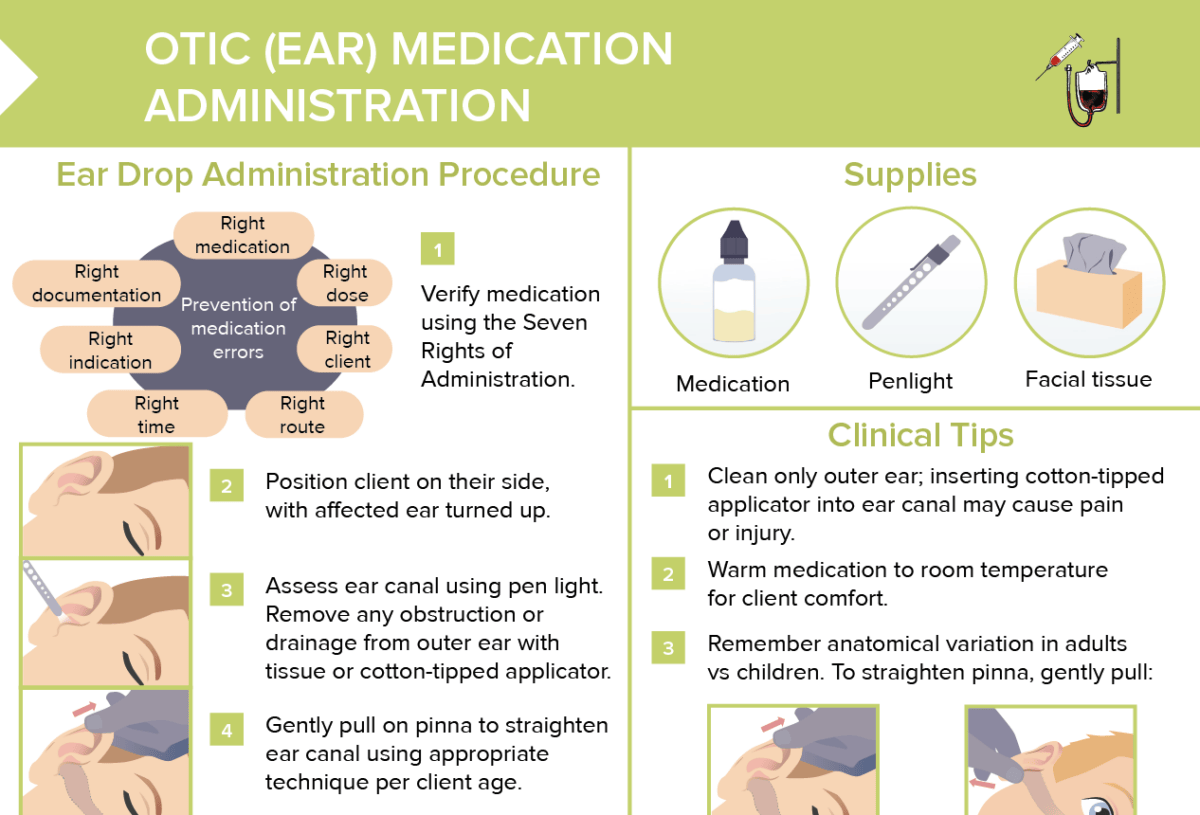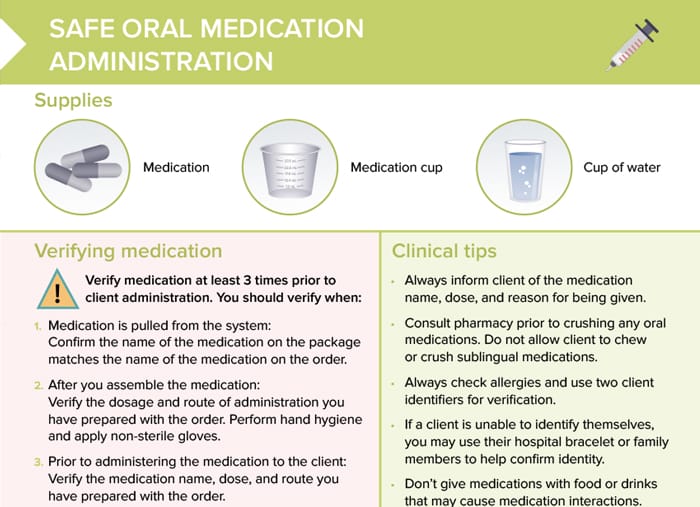What are oral medications?
Oral medications are drugs taken by mouth. Tablets, capsules, liquids, or suspensions are the most common forms.
After swallowing, they pass through the stomach and into the small intestine, where they are absorbed into the bloodstream and distributed throughout the body.
These medications can have systemic effects and treat various conditions, from simple ailments like headaches to complex issues like hypertension or diabetes.
Verifying medication
Note: Verify medication at least 3 times prior to client administration.
You should verify when:
- Medication is pulled from the system: Confirm the name of the medication on the package matches the name of the medication on the order.
- After you assemble the medication: Verify the dosage and route of administration you have prepared with the order. Perform hand hygiene and apply non-sterile gloves.
- Prior to administering the medication to the client: Verify the medication name, dose, and route you have prepared with the order.
How to administer oral medications
Supplies needed
- Medication
- Medication cup
- Cup of water
Procedure
- Verify medication using Seven Rights of Administration and review order.
- Remove the medication from the wrapper and place into the medication cup.
- Give medication cup to the client and allow them to swallow the medication as indicated.
- Provide water to aid in swallowing (if allowed).
- Verify that the medication has been swallowed.
Clinical tips around oral medication administration
- Always inform the client of the medication name, dose, and reason for being given.
- Consult pharmacy prior to crushing any oral medications. Do not allow the client to chew or crush sublingual medications.
- Always check allergies and use two client identifiers for verification.
- If a client is unable to identify themselves, you may use their hospital bracelet or family members to help confirm identity.
- Don’t give medications with food or drinks that may cause medication interactions.
Aspiration precautions
Consider a client’s swallowing abilities when administering oral medications. Assist clients who are unable to administer medications independently.
Children
When administering oral medications to pediatric patients, confirm if the child can swallow pills or if the medication needs altering (e.g., crushing, liquid form), ensuring it doesn’t affect efficacy.
Swallowing problems in older adult patients
Age-related changes (changes in reflexes, muscle weakening, dental issues) as well as underlying health conditions like dementia can contribute to dysphagia in older adult patients. To prevent choking or aspiration and make sure the medications are properly absorbed, make sure to judge their swallowing ability and, if necessary and possible, modify the medication’s form, or employ strategies like chin tucking or multiple, smaller swallows to help.

